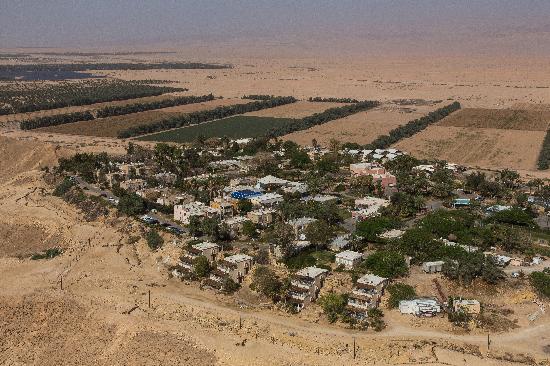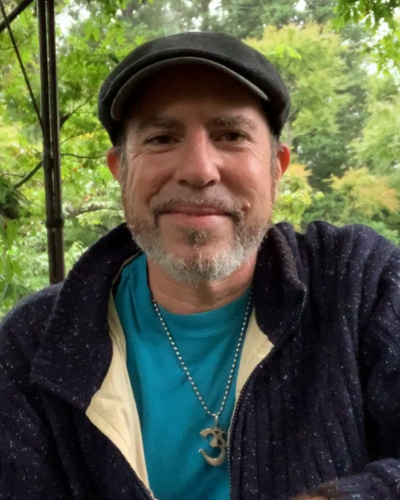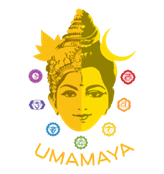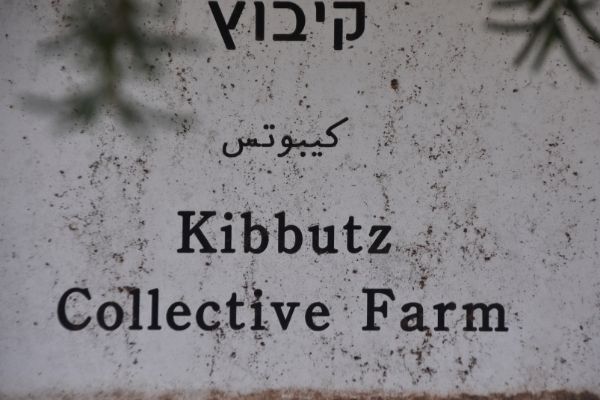Once upon a time I had occasion to spend some time on a kibbutz in the Negev desert. I was young and it was my first time overseas. I was full of excitement and idealism – I’d just arrived in the Holy Land! Never mind that the Palestinian Intifada of 1989 had just erupted; not all is as we see on the evening news. As a matter of fact, I’d never felt safer than when being accompanied onto the local transport by soldiers armed with Uzi machine guns.
On the day I arrived at the Kibbutz, the group of us were sat down and given an orientation into the local ways. We were shown the bomb shelters and made to understand that we should move with alacrity when and if strafing planes should appear, or worse, the halo of missiles. We were made to notice the barbed-wire fence encircling our encampment there among the dunes and cautioned not to breech the same; there were dangers that we wanted no part of in that desert. Young tourists such as ourselves were known to be kidnapped for ransoms. Israelis were sometimes killed outright by the errant sniper.
The headmistress of the ulpan-kibbutz, a work farm equipped with a school for students of Hebrew like myself, was a stern old crone. Her demeanor told me she’d seen a lot more than I could imagine. She was stiff and strong and sand-blown brown. And her word was not to be brooked. But as I said, I was young.

One morning just a few short days into my stay, I found myself sitting by the fence looking out into the peaceful sands beyond. I saw the golden aura of the horizon and allowed myself to fantasize of a pilgrimage out into the hot wisps of sand that demarcated one hill from another. I fancied that were I to somehow make it all the way to that golden horizon, I might just be able to reach out and touch the finger of God. A Jewish-American Michael Angelo.
I took off my shirt, puffed out my chest to its most confident, lest I be taken for a timid tourist, and turned the volume all the way up on my Sony Walkman before carefully threading my way through the barbed wire. I figured if anyone in the desert saw me, they’d at the very least take me for a local and perhaps turn a blind eye. After all, who walks shirtless in a desert? Innocent tourists, that’s who. Give me the benefit of the doubt, please. I was full of the enthusiasm of the witless. And duly protected.
I chose my path carefully, electing to walk in a straight line toward the sun and thereby simultaneously creating a precise path 180 degrees behind me for my journey back. Perhaps if I’d been blessed with just a little more intelligence I might’ve recalled my high school science and remembered those lessons about Earth on an axis and arcs of the sun, but no. If not my own, a different intelligence was guiding me today. Obviously, 30 years later I am here to tell the tale, so let me just tell you then how it transpired.
I walked. And walked and walked, toward my destination at the golden horizon. I walked and saw nothing for miles around me, over this dune and that. Not even the errant scorpion, that place was so dead. And yet, something bolstered me, kept the spring in my step. As I recall, I’d only brought a bit of water with me, so it was either the slowly encroaching thirst that had finally caught up with me, or the evidence of a beautiful day approaching dusk that made me turn from my reverie in that sandy paradise to thoughts of getting myself back to the kibbutz now nowhere in sight behind me. I promptly turned around. A graduate of ROTC cadet training, I knew how to do a sharp 180 in any case. However I would realize after walking another hour or so, the terrain did not entirely look like that which I had traversed just hours earlier.
And that is when I happened on to a Bedouin encampment. Chava’s words came back to me in a rush of anxiety as I walked headlong into the camp. There were the clucking chickens and pointing fingers of sun-drenched children. Pitched tents and pick-up trucks. How could I have missed this on my way out? How far off course was I? Where was I? It was like I’d suddenly been teleported onto the set of a movie. And that’s when a scruffy old Bedouin approached me, Arafat-esque head gear of dark green and white, fatigue jacket and khaki pants, long dirty beard. But bright, twinkling eyes. He said something to me in a language I hadn’t mastered yet.
“Hey. Who are you?” Perhaps is what he was getting at. I asked him for water by gesture. He signaled for the same to be brought, eyeing me steadily. A young lady brought water and the man asked me again, this time in English. “American?” I was almost astounded that he could recognize me through my disguise. But I was too tired now, suddenly, to put on any airs or attempt any subterfuge. I laid it all out for him in my best pigeon English.
I told him that I was fresh off the boat. That I was taking up in a Kibbutz, a student. He asked me what I was doing walking around in the desert. I told him sheepishly that I’d been out to find God. He half smiled, half snorted a semi gust of laugh from either of his nostrils. Then he did the unfathomable. He invited me to take a rest in one of the nearby tents. Told me to sit for a while and be friends. He knew the Kibbutz; it was only a few kilometers away and would drive me back when I was ready.
In that tent is where I learned for the first time that there were several sides to the story of the troubles I’d heard about between the Palestinians and Israelis. My own firsthand experience told me only of the kindness I’d received at the hands of one man and his family. A joy I’d shared with his children. Compassionate ministrations from an old maid and even a clean shirt! The tea was spiced and chilled. They played a happy music. They were interested to know what brought me to them and I was interested to know these people who moved through the desert like they owned the place. I made friends that day. And it was an experience that would mark me more indelibly than any warning orientation or second-hand news coverage ever could.
Perhaps there’s a really long story over there in the Middle East. A really long story. A story so long that my short time in Israel would not be enough to convince me that the Palestinians and Israelis are anything more than siblings involved in a long family squabble.
As for me, I walked out into the desert that day and came back thinking I’d touched the finger of God. Thirty years later, I still believe that to be exactly what happened.

…is a Saiva Tantrika, Gyana Yogi and founder of Uma Maheshwara Yoga & Ayurveda. David has an MA in Semiotics, lives in Japan with his family and works as a coach in L & D, devoting his time to developing science-based tools and programs that help people reach the fullest potential of the human condition.
Discover more from REAL YOGA
Subscribe to get the latest posts sent to your email.


